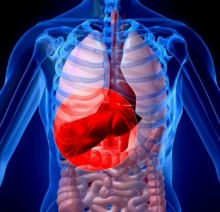Hepatitis is a liver disease which occurs due to the presence of inflammatory cells in your liver tissue.
 It is characterized as acute and chronic hepatitis. Acute hepatitis lasts less than six months, whereas chronic hepatitis persists for longer periods, may be life long also.
It is characterized as acute and chronic hepatitis. Acute hepatitis lasts less than six months, whereas chronic hepatitis persists for longer periods, may be life long also.
The main reason for this disease is group of hepatitis viruses which cause liver damage.
It can also come from some toxins like alcohol, other infections or due to autoimmune process.
Hepatitis viruses are from A to G and some other viruses include cytomegalovirus, Epstein – Barr virus, yellow fever, etc.
Hepatitis A and vaccine:
It is an acute and self-limiting disease of the liver. In youngsters, this infection is generally asymptomatic, but it is a symptomatic disease in adults.
The vaccine used to treat hepatitis A is completely different from the immune globulin (IG) that most of you receive after an outbreak. Only for short-term, IG can be used and it helps in boosting your immune system to keep you away from getting sick and with hepatitis A after exposure.
This vaccine provides protection for very long period and is generally given before you are exposed to hepatitis A. Often it is suggested for people who are at risk for infection and if you want to obtain immunity to hepatitis A. After taking the first dose of the vaccine, the protection against hepatitis A begins.
Hepatitis A vaccine is safe for those who suffer from the condition. Soreness at the area of the vaccine is the most often experienced side effect. This vaccine protects against hepatitis A for 25 years in adults and at least 14-20 years in children.
If you have any chronic health conditions or you are a pregnant woman, then you should consult your doctor before getting the hepatitis vaccine. Doctor’s advice is must for everyone who is taking hepatitis A vaccine. You can receive the vaccine at your healthcare provider clinic.
Those who get this condition sometimes will experience no symptoms and sometimes can get very sick. Some of the symptoms include: fever, tiredness, loss of appetite, nausea, dark colored urine, light colored feces, and eyes and skin turn to yellow color. It causes jaundice for a few days.
This condition does not become chronic or long-term infection. Hepatitis A can be spread by a virus found in the stool of a person who has this condition. You will experience very severe infections when the virus gets into your mouth by eating or drinking polluted foods and beverages. You will also get it by placing dirty toys or other items in the mouth.
In order to prevent hepatitis A, vaccination is an important method. Wash your hands carefully after using the toilet, after a diaper change, and before going to prepare the food. They place an important role in preventing the spread of hepatitis A.
Hepatitis B:
This infection is a silent killer, because the individual who is affected with this condition doesn’t experience any symptoms. Instead, the individual will appear in a perfect health condition.
The hepatitis B virus is 10 times more widespread and 100 times more infectious than AIDS. One among 1,000 members has the chance of getting hepatitis B. This infection is most predominant in Asian countries. If untreated, it causes chronic liver cancer, which can lead to death.
This can be transmitted from mother to child, from sexual contact, blood transfusions and by needle sharing by intravenous drug users.
Hepatitis C:
About 3% of the world population have hepatitis C virus (HCV). This can lead to either self recovery or chronic hepatitis. Most of the chronic illness will develop into liver cancer. Till now there is no cure discovered for chronic hepatitis C nor there is any approved vaccine for this virus. It is a major health problem in the today’s world. You can check whether there is an alternative liver cancer treatment.
20-50 percent of the people infected with HCV can recover spontaneously. Liver transplantation may help to recover from HCV. In order to get relief from liver cancer, liver transplantation is considered. But, after the liver transplantation, there is a chance to re-infect with the virus.
In order to avoid this problem, a HCV patient is first treated with interferon (IFN), ribavirin, or PEGylated IFN. PEGylated IFN is a chemical modification sustaining higher stability to the modified polypeptide medicine. After treating with this compound for five weeks, the HCV antigens will not be detected in the patient’s serum.
Hepatitis D:
This is propagated only in the presence of the hepatitis B virus and it increases the severity of the disease. This can spread from mother to child and through sexual contact.
Hepatitis E:
The symptoms of hepatitis E are similar to hepatitis A. HEV is transmitted through fecal-oral route. Generally it occurs from drinking water which is contaminated by human feces. There is no evidence for the detection of chronic infection in long-term follow-up of patients with this virus.
Hepatitis F:
It is a nonexistent virus.
Hepatitis G:
This virus occurs worldwide, but the clinical significance for this is still unclear.
In order to prevent hepatitis for some extent, premarital tests are necessary. These tests are also useful to recognize some genetic blood disorders and diseases. If your test result is HIV positive then you are referred to specialized AIDS treating centers.
The treatment also consists of changes in diet and in some cases antiviral drugs are used. You need to take proper rest.
In every circumstance, you need to follow safer sex. If you neglect it, there is a greater chance of spreading hepatitis or any other sexually transmitted diseases.













